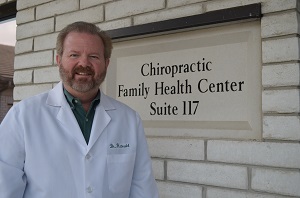Archive for the 'Carpal Tunnel Syndrome' Category
The wrist is very flexible, and the reason the wrist is so supple is because it’s made up of eight small carpal bones that are lined up in two rows of four bones each. Along with the transverse carpal ligament, these rows of carpal bones form an actual tunnel in which nine muscle tendons (and [..]
Carpal tunnel syndrome (CTS) is a condition the occurs when mobility of the median nerve is restricted as it passes through the wrist, resulting in symptoms that extend into parts of the hand including pain, numbness, tingling, and weakness. Generally, symptoms come on gradually but worsen and become more frequent over time. While most often [..]
Outside of an emergency situation, such as a wrist fracture, treatment guidelines for carpal tunnel syndrome generally recommend exhausting non-surgical options before consulting with a surgeon. But how well are guidelines followed? To find out, researchers surveyed 770 members of the American Society for Surgery of the Hand to better understand the current practice patterns [..]
Carpal tunnel syndrome (CTS) can be a complex condition that can be a challenge to manage for several reasons.
There can be multiple contributing causes. Seldom is CTS the result of one traumatic event, like a broken wrist that produces instant symptoms that requires emergency surgical treatment. Rather, the condition tends to develop over time as [..]
Lateral epicondylitis—also known as tennis elbow—is a tendinopathy of the extensor forearm muscles, which are located on the back of the hand side of the forearm. It’s estimated the condition affects up to 3% of middle-aged adults. As with many musculoskeletal conditions, treatment guidelines emphasize exhausting non-surgical options before consulting with a surgeon.
In a [..]
When it comes to a condition like carpal tunnel syndrome (CTS), we often look at it from the standpoint of risk factors, potential causes, and treatment options. However, there’s a perspective that’s often overlooked: the experience of the patient as they navigate the process from diagnosis to treatment outcomes. In a 2022 study, researchers conducted [..]
Carpal tunnel syndrome (CTS) is the most common peripheral neuropathy of the upper extremity. It can arise from many causes (sometimes more than one at the same time) such as anatomical variations, ganglion cysts, occupational mechanical stress, and systemic diseases including obesity, drug toxicity, alcoholism, diabetes, hypothyroid, rheumatoid arthritis (RA), etc. Let’s discuss how a [..]
When a person experiences pain, numbness, tingling, and/or weakness in the hand, they may assume it’s carpal tunnel syndrome (CTS) since it’s the most common and well-known peripheral neuropathy. Unfortunately, many healthcare providers may also jump to the same conclusion, and care may focus on the hand and wrist. One problem with this approach is [..]
Carpal tunnel syndrome (CTS) is a condition that occurs when the mobility of the median nerve is impeded as it passes through the wrist. Outside of emergency circumstances, clinical guidelines recommend that patients exhaust conservative options before consulting with a surgeon. The most common conservative treatments are splinting of the wrist (especially at night), steroid [..]
Carpal tunnel syndrome (CTS) is a condition associated with pain, numbness, tingling, and weakness in the wrist and parts of the hand, which is caused by compression of the median nerve as it passes through the wrist. Due to this common condition having such a dramatic effect on one’s ability to carry out work and [..]


